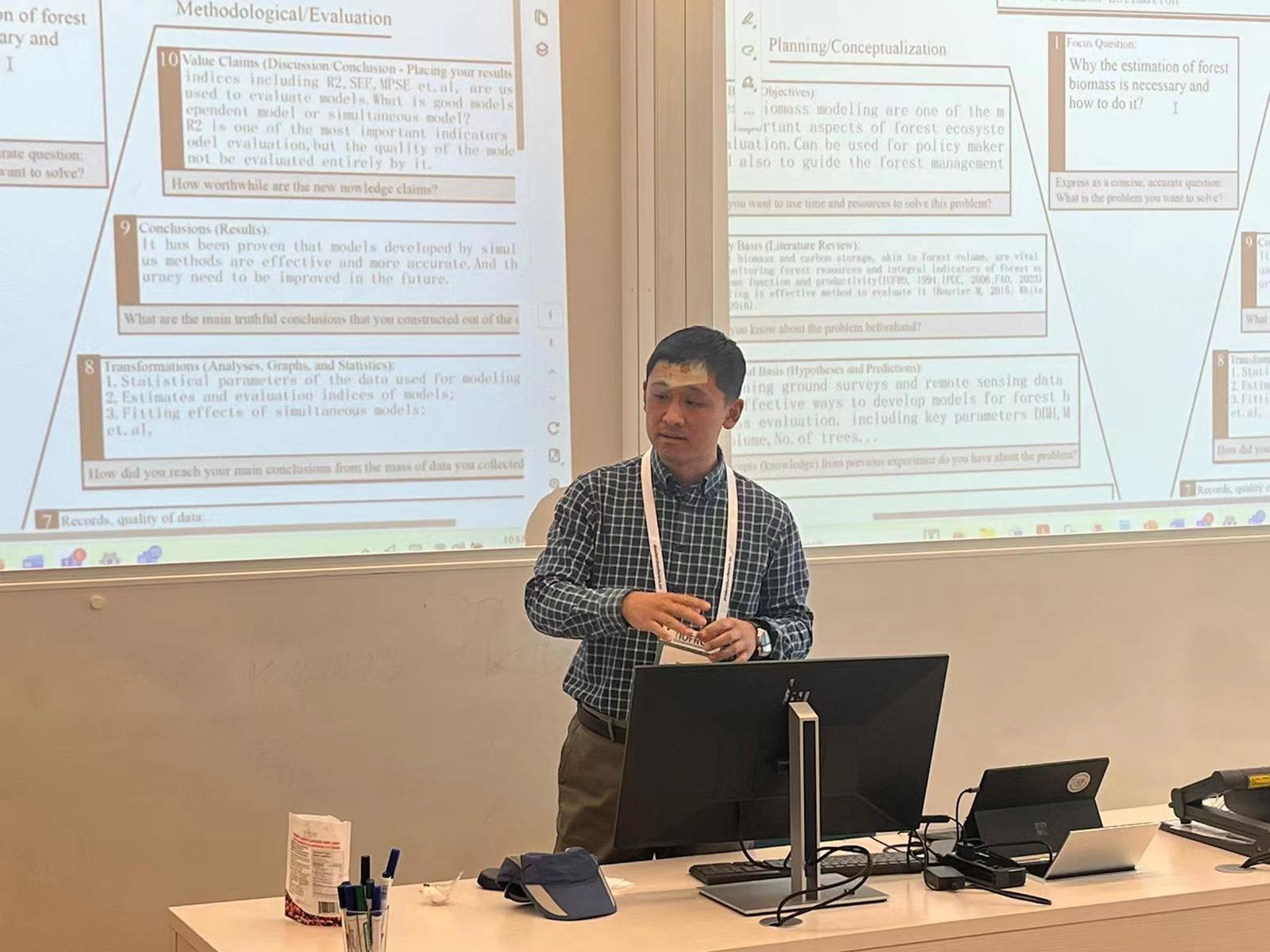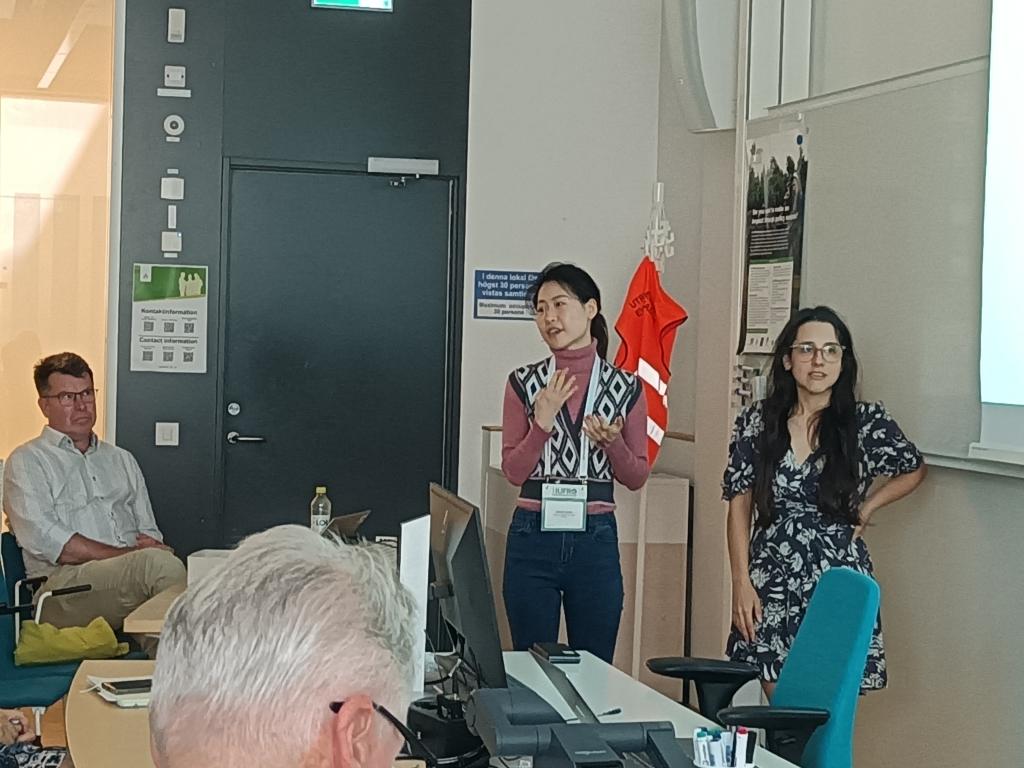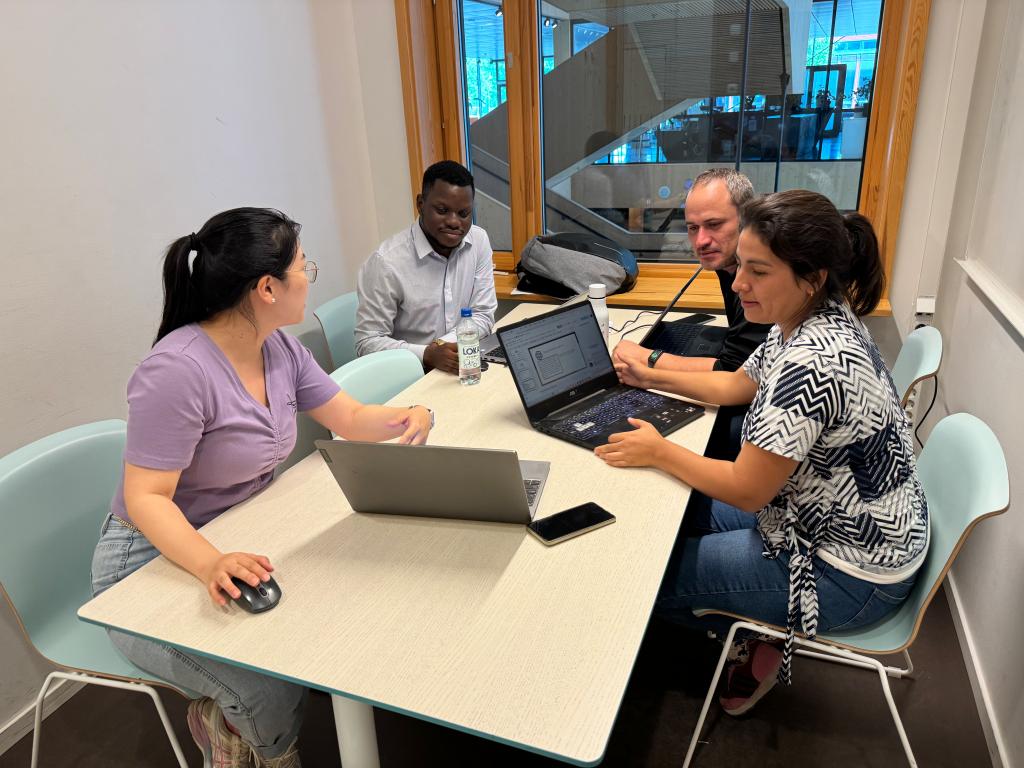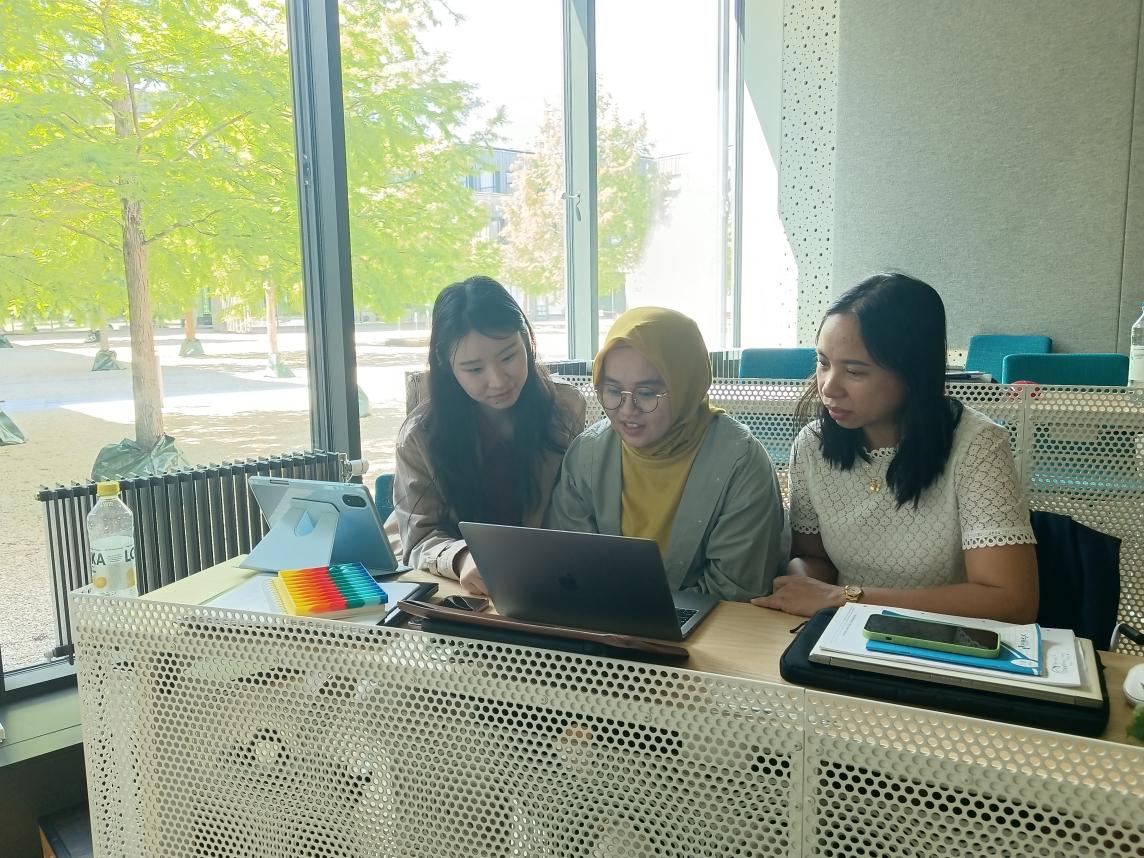Nearly 70 trainees from 42 countries participated in the IUFRO-SPDC training workshop.

Associate Researcher Zou Wentao participates in the workshop for exchange

Associate Researcher Zhao Xiaodi deliveres presentation

Assistant Researcher Zou Junzhu discusses with students

Dr. Guo Tongfang discusses with students
On 19 June 2024, the IUFRO-SPDC training workshop was officially launched at the Ultuna Campus of the Swedish University of Agricultural Sciences (SLU) as a pre-congress training workshop for the 26th IUFRO World Congress. Nearly 70 trainees from 42 countries including China, Congo, Indonesia, Mexico, etc. participated in the training workshop. Associate Researcher Zou Wentao, Associate Researcher Zhao Xiaodi and Dr. Guo Tongfang from the Research Institute of Forestry Policy and Information, and Associate Researcher Zou Junzhu from the Research Institute of Forestry, participated in the three-and-a-half-day training workshop.
The IUFRO-SPDC was originally a special program for developing countries. It was established in 1983 to strengthen the scientific research capacity of research institutions in developing countries. Currently, it carries out a number of training programs for forestry scientists, cooperative research networks, scientist assistance and other projects. This training workshop offers three courses: Research Methods in Forest Science, Science-Society Interactions: Making Science Work for Policy and Practice, and Systematic Evidence Evaluation in Forest Science, which are respectively led by Professor John Kershaw from the University of New Brunswick, Canada, Professor Steve Makungwa from the Center for Applied Systems Analysis in Malawi, and Professor Gillian Petrokofsky from the University of Oxford, UK.
Through training and group discussions, four young scholars from Chinese Academy of Forestry have deepened their understanding of scientific research program framework design, transformation of scientific knowledge into decision-making and management, and support for good management decisions and forestry practices using key scientific issues. They have also improved their ability to apply scientific research and its results in practice, and gained a deeper understanding of how to conduct in-depth research on scientific issues.
Source: http://www.caf.ac.cn/info/1255/52804.htm